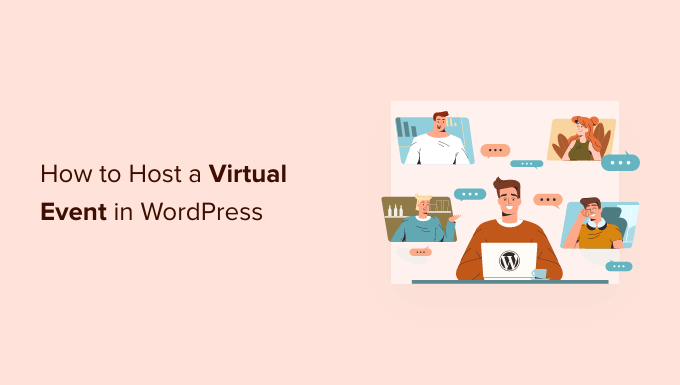Are you on the hunt for the optimal method to host and oversee a virtual event? If you’re planning to organize your next conference or conduct a webinar online, you might be grappling with concerns about costs and the absence of technical expertise. In this comprehensive guide, we will equip you with all the essential tools and online services required to seamlessly host a virtual event on your WordPress website. Furthermore, if your business lacks a website altogether, fret not, for we shall address that issue as well.
**The Advantages of Hosting Virtual Events**
Utilizing your WordPress website as a launchpad for virtual events, whether it’s a conference aimed at establishing your authority or a webinar designed to showcase your products and services, can be an immensely rewarding endeavor. Virtual events are gatherings that transpire online, where people connect through their computers and mobile devices rather than convening in person. These events can vary in scale, from intimate get-togethers to grand-scale conferences boasting thousands of attendees. They serve as a powerful tool for lead generation, heightened user engagement, and even revenue generation through sponsorship opportunities, premium ticket sales, and paid memberships.
The merits of hosting such events online are plentiful. You won’t be saddled with the financial burden of securing a physical venue, and participants won’t have to grapple with transportation logistics. Moreover, differences in time zones will exert less influence, potentially leading to larger event turnouts. Nevertheless, it’s worth noting that virtual events are not immune to technical hiccups and challenges. Regardless of whether an event unfolds in the digital or physical realm, it demands meticulous planning, concerted effort, and access to the right resources.
If you’re eager to learn the ropes of hosting a virtual event via your WordPress website, we’ve got you covered. Here’s a sneak peek of what you can expect in this guide:
**1. Setting Up Your Event Website**
– Skip this step if you already have a WordPress website.
– Leverage your existing business website or construct a dedicated landing page for major events.
**2. Choosing and Installing a WordPress Event Plugin**
– Select and install a plugin tailored to your event’s requirements, whether it involves ticket sales or RSVPs.
**3. Crafting an RSVP Form in WordPress**
– Utilize the user-friendly WPForms Lite plugin to efficiently track and manage attendee registrations.
**4. Creating a Straightforward Event Calendar in WordPress**
– Employ a plugin like “The Events Calendar” to effortlessly showcase event details and manage scheduling.
**5. Designing an Event Registration Page in WordPress**
– Sidestep unnecessary fees by crafting your own registration page using WPForms.
**6. Crafting a Captivating Landing Page for Your Event**
– Harness the capabilities of a WordPress landing page plugin to design and promote your event effectively.
**7. Procuring the Right Audio and Video Equipment**
– Ensure top-notch audio and video quality by investing in high-quality equipment such as USB microphones.
By following these meticulously outlined steps, you’ll be well-equipped to host and oversee virtual events with finesse on your WordPress website. Let’s dive right in!


